Interest Free Financing Up To 36 Months
WE DO NOT ONLY PUMP YOUR TANK - WE CLEAN IT!
Multiple Financing Options Are Available Up To 36 Months
Interest Free Financing Up To 36 Months
WE DO NOT ONLY PUMP YOUR TANK - WE CLEAN IT!
Multiple Financing Options Are Available Up To 36 Months
When most homeowners think about their septic system, they usually focus on the tank or the pipes. However, the soil beneath your property plays a critical role in how well your septic system functions. The ground essentially acts as a natural filter, treating and dispersing wastewater safely. Without the right type of soil or proper maintenance, even the most well-installed septic systems can fail. Understanding how soil impacts septic performance can help you avoid costly repairs and ensure your system operates efficiently for years to come.
In this blog post, our professionals from Septic Blue will talk about how your soil determines your septic system’s success.
Septic systems are designed to treat wastewater through a combination of biological and physical processes. Once wastewater leaves the septic tank, it flows into a drain field, where it filters through the soil. The soil helps remove harmful bacteria, viruses, and nutrients from the wastewater before it reaches the groundwater. For this process to work properly, the soil must have the right structure, composition, and drainage capacity. If the soil is too compacted or poorly draining, wastewater can back up or pool on the surface, creating a health hazard and requiring instant septic service in Apex, NC.
One of the most important aspects of soil in relation to your septic system is its percolation rate. This refers to how quickly water moves through the soil. If your soil drains too quickly, it may not filter out contaminants effectively, increasing the risk of groundwater pollution. On the other hand, soil that drains too slowly can cause water to back up into your home or pool above the drain field. That’s why septic companies often conduct a percolation test before installing a new system. This test helps determine whether your soil can support a septic system and what type of system will work best.
The type of soil on your property such as clay, sand, or loam affects how well your septic system operates. Clay soils are dense and drain slowly, which can cause pooling and eventual system failure. Sandy soils, while allowing for quick drainage, may not filter wastewater effectively, leading to contamination. Loamy soil is generally considered ideal for septic systems. It offers a balanced mixture of sand, silt, and clay, providing good drainage and filtration. A trusted septic company can evaluate your soil type and recommend the best septic system design for your property.
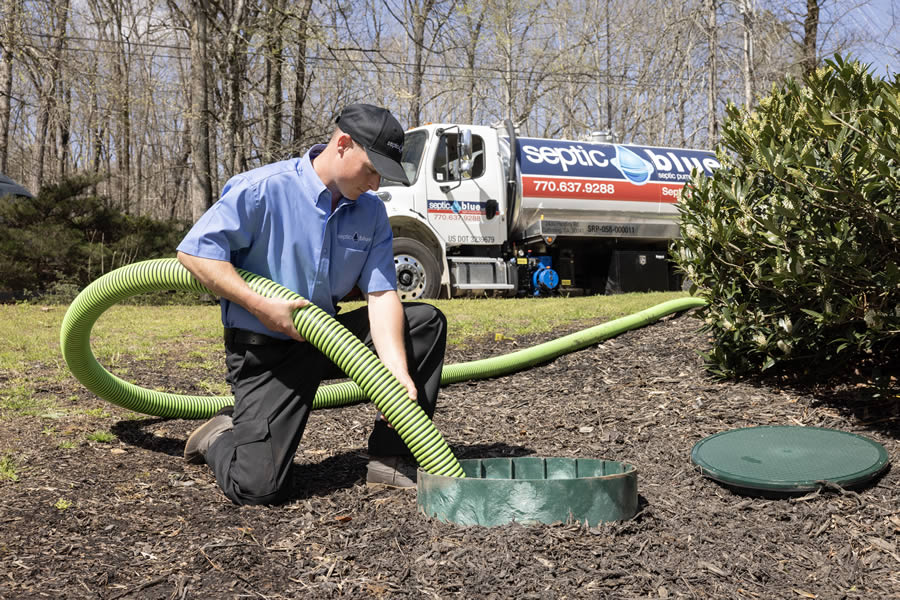
Septic tank pumping in Raleigh has never been so affordable and accessible thanks to the professionals at Septic Blue. We are…
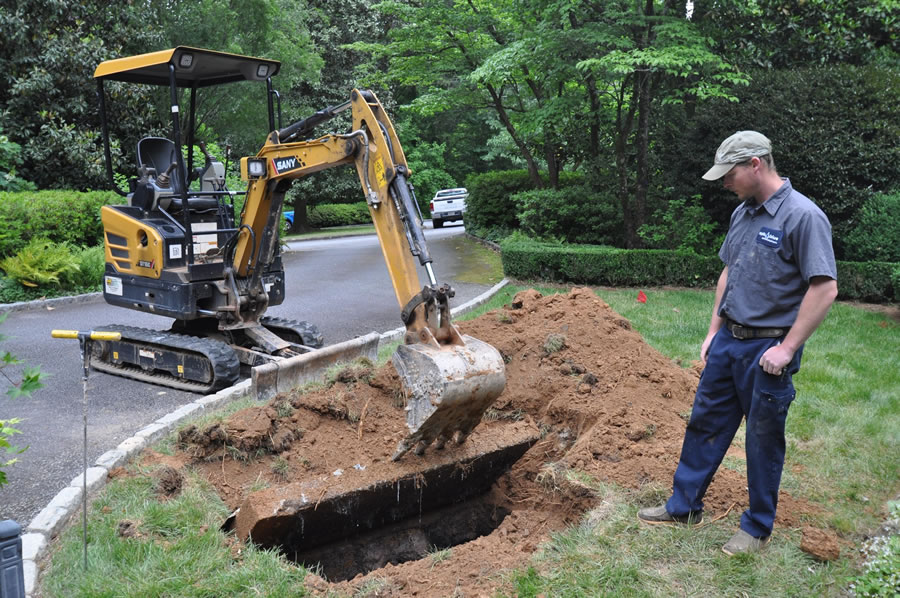
One quarter of Americans rely on septic tanks to process household waste. Most Septic Blue locations have septic tank experts who…
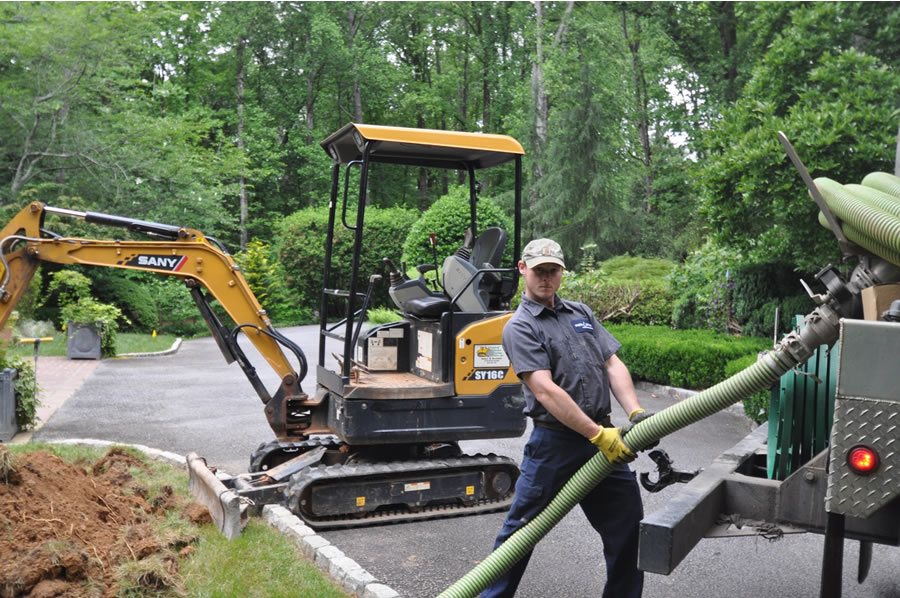
Call Septic Blue today for a second opinion. If you choose to go with Septic Blue, you'll receive $250 off your…
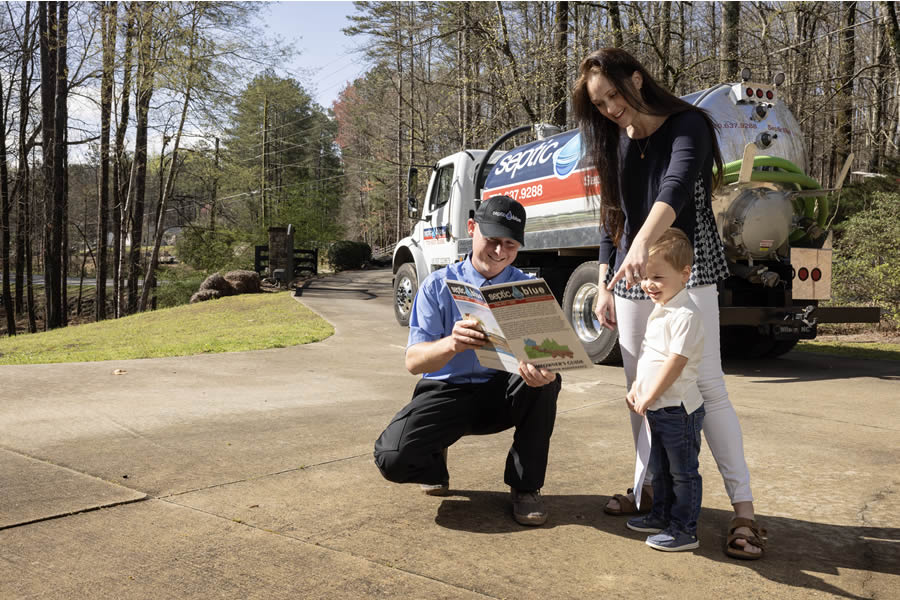
If you are a homeowner or resident in Raleigh that is among the 20 percent of households in the U.S. with…
Professional Saptic Plumbing solutions for every need. Contact Us Today!
Even with the right soil, your septic system still needs routine maintenance to function properly. Over time, solids build up in the septic tank and can overflow into the drain field if not removed. This can clog the soil pores and reduce the system’s efficiency. Regular septic pumping and cleaning help prevent this issue by removing accumulated waste and ensuring that only treated water flows into the drain field. If your soil becomes clogged due to neglect, it can take years to recover or may even require complete drain field replacement, an expensive and disruptive process.
Your soil is not just dirt beneath your feet, it’s a vital component of your septic system’s success. Understanding the relationship between soil and wastewater treatment can help you make informed decisions about system installation, maintenance, and repair. With regular septic service and proper care, your soil will continue to perform its natural filtering function, keeping your home safe and your environment clean. If you're unsure about your soil's suitability or suspect septic trouble, contact a reputable septic company to evaluate your system and keep everything running smoothly.
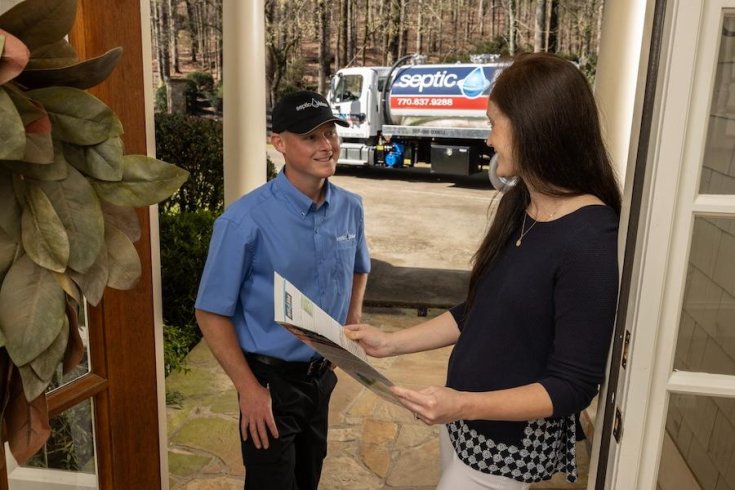
Hiring a septic company in Raleigh, NC involves more than comparing prices or scheduling the earliest appointment. Septic pumping, cleaning,…
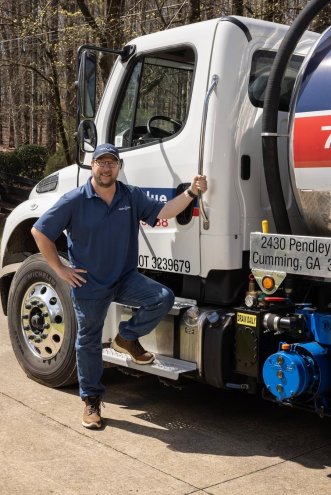
A septic system is designed to move wastewater efficiently from your home into a tank and then into the drain field.…
.webp)
Even if it often fades into the background of daily life, a septic system plays a critical role in keeping your…
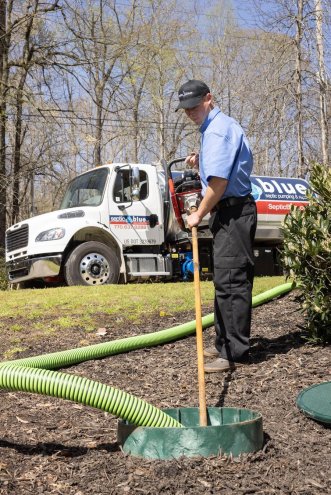
Septic systems play a critical role in protecting your home, health, and surrounding environment. Unfortunately, they're often misunderstood as systems that…